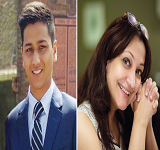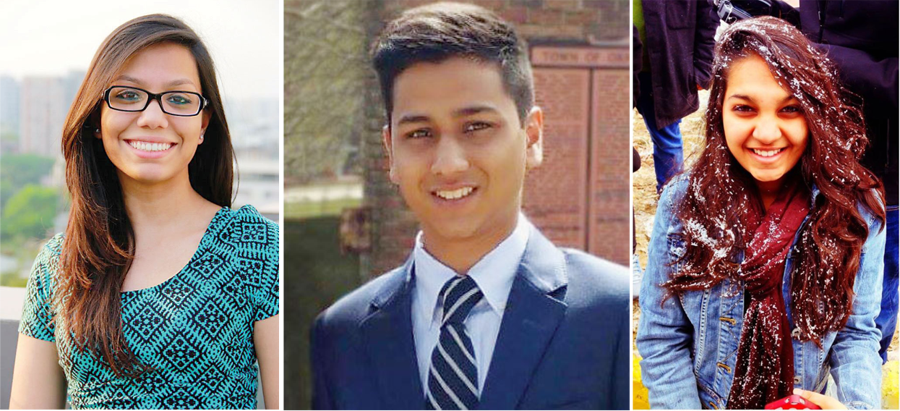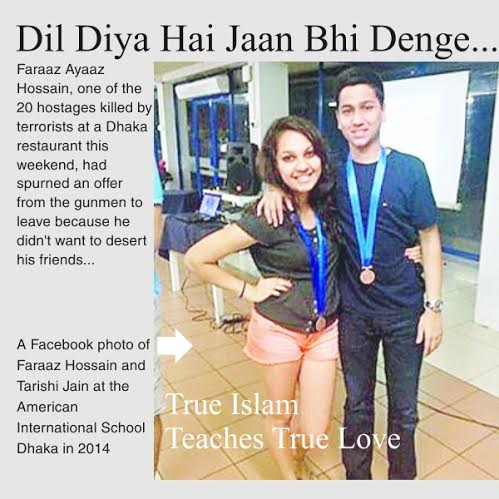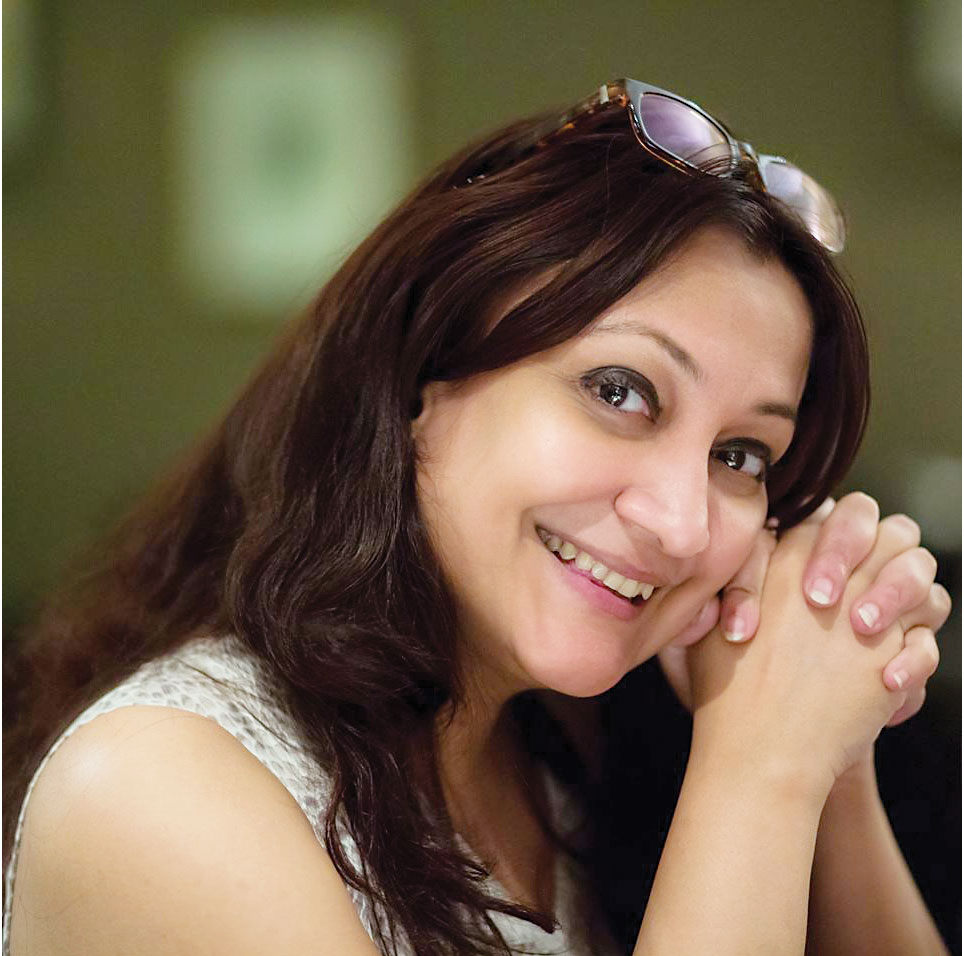

Friends the terrorists could not separate: (L to R): Abinta Kabir, Faraaz Ayaaz Hossain, Tarishi Jain (Photo credit: Dhaka Tribune)

A message from Facebook
The butchers who slit throats to bleed their 20 victims to death, one by one, at the Holey Artisan Bakery in Dhaka last weekend were inclined to make an exception of Muslim hostages. All through Monday, July 4 there were 55,000 plus viwers on Facebook looking and talking about Faraaz, a hero in death
Two such hostages – one a student, the other a young woman executive – chose to die for their principles rather than capitulate to the “mercy” offer of the mass murderers to “fellow Muslims”.
The Indian Express reports:
Tarishi Jain, 18, Abinta Kabir, 19, and Faraaz Ayaaz Hossain, 20, were all alumni of the school that has been closed for a couple of days following news of the attack.
Sources told The Indian Express that Faraaz may have sacrificed his life, as he did not want to leave his two friends behind. This fact came to light during questioning of the hostages who were rescued, said sources.
According to these sources, Faraaz was given the option of leaving late on Friday night. Since Tarishi and Abinta were wearing western clothes, the terrorists asked Faraaz where they were from. He reportedly told them that they were from India and the US — although Abinta was studying in the US, she was a Bangladeshi citizen.

Ishrat Akhond. Photo credit: Dhaka Tribune.
Ishrat Akhond, 45, fondly called “Nila” by her family and friends, was the Human Resources Director of one of Bangladesh’s largest garments manufacturing company — ZXY International FZCO.
That Friday night, she had gone to dine with two Italian designers who were visiting the country.
Speaking to The Indian Express on condition of anonymity, Akhond’s friends said they were told that she was hacked to death because she was not wearing a hijab, and refused to recite from the Quran when asked to do so.
Her friends said that courage was a part of the same unbending principles that came to symbolise “Nila Apu” in Bangladesh’s social and cultural circuits, and also her business career.
“They took this beautiful soul,” is how one friend referred to ‘Nila’ while talking to the Washington Post.
"She was also strong, fiercely independent, madly in love with life, full of dreams and aspirations," Farzana Ahmed Sobhan, a friend, wrote on Facebook. "She was fiery, never one to be afraid of speaking her mind and standing up for justice. She must have been terrified, but she couldn't have gone without a fight. I know that."
The merchants of death had to kill a woman who was “madly in love with life”.
